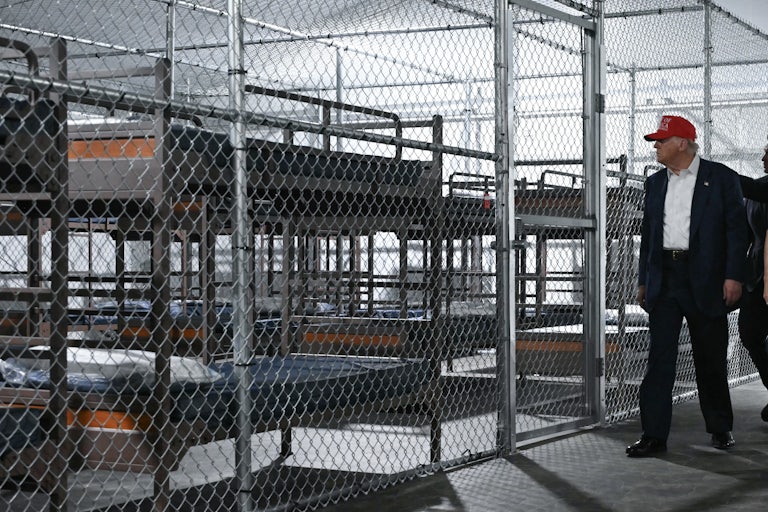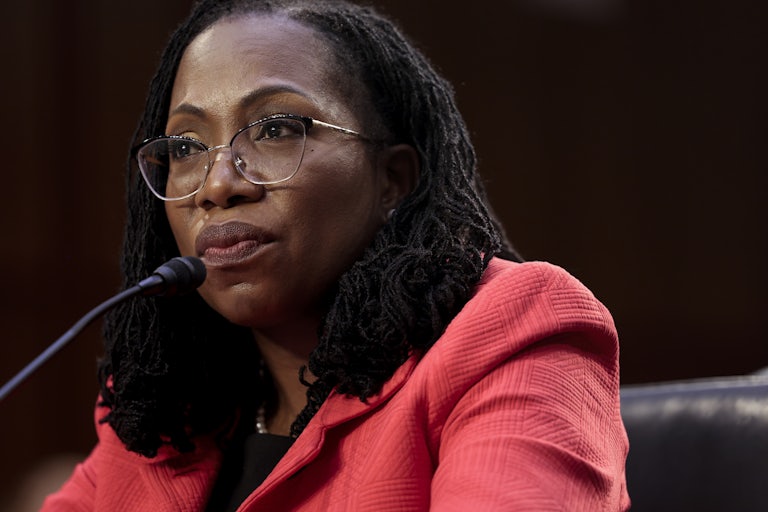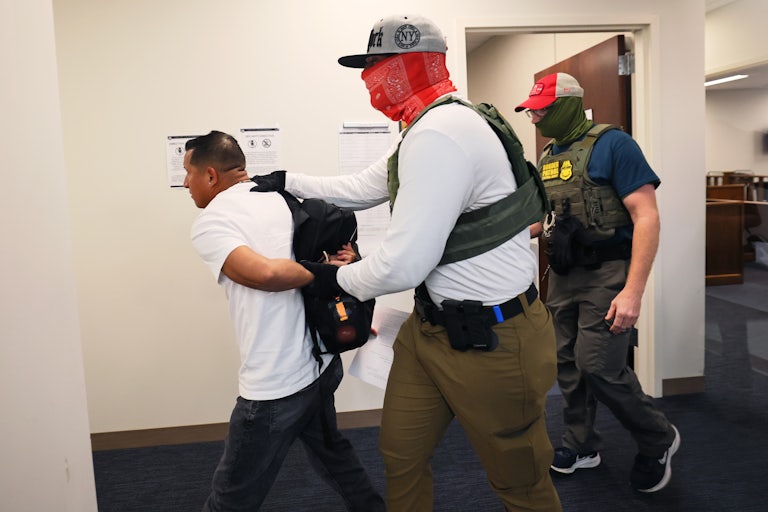The Sickening Living Conditions at “Alligator Alcatraz”
Donald Trump’s brand new immigrant detention facility is a massive humanitarian disaster.

Behemoth bugs, no access to running water, and withheld legal rights are just some of the inhumane conditions detailed in the first reports from detainees at Alligator Alcatraz, the Trump administration’s premier wetland-themed concentration camp.
The Miami Herald spoke with the wives of three men detained at Alligator Alcatraz who said that their husbands had not been given access to showers. Two of the women said that the toilets had no water in them. Despite the Florida government’s insistence that the accounts of alleged conditions are false, many of the detainees’ details were the same.
Eveling Ortiz, whose boyfriend, Vladimir Miranda, was detained by ICE, also told NBC Miami the same. “They don’t have water, they can’t use the bathroom properly. They’re not taking a bath,” she said.
Leamsy Isquierdo, a Cuban reggaeton artist who was arrested on assault charges, told CBS News that he had been unable to shower since arriving Friday. “There’s no water to take a bath, it’s been four days since I’ve taken a bath,” Isquierdo said.
All three wives told the Herald that their husbands reported behemoth bugs had gotten into the tents, including a grasshopper the size of a hand, and Isquierdo said that detainees were being terrorized by mosquitoes “as big as elephants.”
Ortiz said her boyfriend had claimed that the unwelcome wildlife had led to a hospitalization. “They took somebody to the hospital because there is a lot of mosquitoes, because he was getting swollen on his face, and they didn’t know what was going on,” she said. On Monday, one detainee was taken to the hospital, though it’s unclear why.
Stephanie Hartman, a spokeswoman for Florida’s Division of Emergency Management, the state agency overseeing operations at the facility, gave a statement dismissing the allegations of poor conditions.
“Bugs and environmental factors are minimized in the facility, restraints are only utilized during transport outside of the detention centers, and visitation arrangements can be made upon request. All plumbing systems are working and operational,” Hartman said.
But the wildlife and lack of water are just one part of the problem.
Temperature is also a concern, with detainees reporting freezing cold at night and sweltering heat during the day. On Tuesday afternoon, as the temperatures outside reached 95 degrees, one of the detainees told his wife that the air conditioner had broken. Another told his wife that “the air is hot,” sounding out of breath.
Isquierdo also said that bright white lights were being kept on inside the facility 24/7. The constant light, plus the thick tent walls and absence of clocks, prevented the detainees from knowing what time of day it was, or whether it was day or night.
“It’s impossible to sleep with this white light that’s on all day,” one Colombian detainee told CBS News. “I’m on the edge of losing my mind. I’ve gone three days without taking my medicine.”
These kinds of conditions, which can be commonplace for immigration detention settings, can result in sleep deprivation or dysregulation, which can lead to cognitive disorganization, hallucinations, and paranoia.
Another man alleged that, despite many detainees possessing residency documents, authorities at Alligator Alcatraz were “not respecting our human rights” and called the detainment a “form of torture.”
“We’re human beings; we’re not dogs. We’re like rats in an experiment,” he told CBS News.
“They took the Bible I had, and they said here there is no right to religion. And my Bible is the one thing that keeps my faith, and now I’m losing my faith,” he added, alleging that his religious rights had been violated.
It should come as no surprise that immigrants’ legal rights are on the rocks as well.
Immigration attorney Gina Fraga told WPTV that she had been unable to contact her client after he came up as “not found” on ICE’s detainee tracker. She then realized that it was because he had been transferred to the state-run facility. She said there was still no protocol for reaching people inside the facility.
Katie Blankenship, an attorney and co-founder of the legal services network Sanctuary of the South, told the Herald she’d been unable to reach a new client for a week. “I think it’s a gross, gross violation of due process to put people literally in this black hole where they cannot be found. They cannot speak with counsel, they cannot contact immigration court. They are just, for all intents and purposes, disappeared,” she said.









